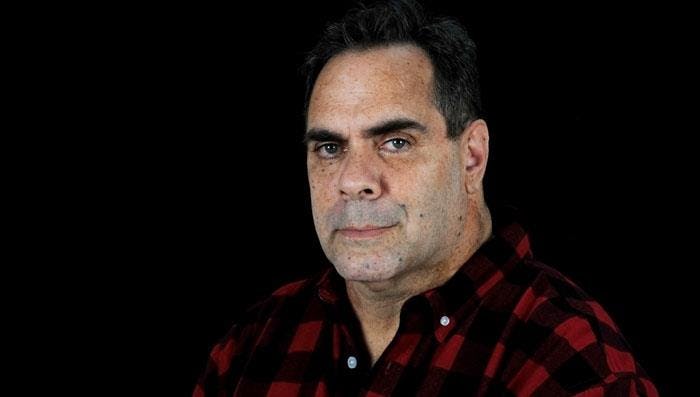Special Edition: A Chat With H Lawrence Sumner
October 5th, 2021
Friends of the Lysicrates Prize will know the name of H Lawrence Sumner from the 2018 Lysicrates competition, where his play The Hollow Queen was one of the three shortlisted for the prize.
We at the Lysicrates Foundation like to follow the fortunes of our shortlisted plays. So when we heard that the State Theatre Company of South Australia had recently given Howard’s completed play a full reading, with professional actors, Kathleen Gilbert, one of our Lysicrates Foundation Board Members, got in touch with him.
I chatted to Howard via Zoom from his home in Goolwa – Ngarrindjeri country – in South Australia, where he is busy working on a range of creative projects.
Having seen the very successful 2018 STC production of Howard’s The Long Forgotten Dream, I was interested to hear that the two plays are part of a trilogy that also includes The Fragrant Soul. Howard explained that in the play cycle he wanted to create the wide sense of connectedness in his community. So, while no character appears in more than one play, many of them are ‘off-stage’ in the other plays, and there are all sorts of family and other relationships that cross over between all three plays. The spiritual world intrudes in different ways for many of his characters, both Aboriginal and white.
His Aboriginal characters, in both The Long Forgotten Dream and The Hollow Queen, are living successfully in both Aboriginal and white worlds. Nevertheless, Howard says they ‘struggle with a system that continues to colonise the Aboriginal voice’, that wants to define all Aboriginal people in the same way. This is as true of the theatre world as it is of Australian society in general. As Howard says,
I think sections of the industry are really unaware that [Aboriginal playwrights] are being colonised by major theatre companies. Companies who choose to put on their plays and change the Aboriginal voice to suit the audience, so that the audience can come in and feel as if they are somehow having an Indigenous cultural experience, and then can go out and pat themselves on the back for allegedly engaging in an Aboriginal experience. Companies who congratulate themselves for including Aboriginal people at ‘the whole table’. Theatre shouldn’t be that easy for an audience, or theatre makers. An audience should come in, be entertained and learn something, have had a life changing experience ... I've seen that table... It's sad to see voices at that table that are so easily manipulated, rather than remembering and respecting their history. That is the children's table. I will never allow my plays to be manipulated to suit the agenda of a white director or a white theatre company. If that means I don't get a shot on stage... then it's not the industry I want to be involved in. Either way, it's a win for me. I'm not so insecure that I beg for a seat at the table.
But it may be possible for the system to change. There is hope in Howard’s work with white theatre makers, and also in the plays themselves. There are strong respectful relationships between Aboriginal and white characters in both The Long Forgotten Dream and The Hollow Queen, signalling hope for a more positive future for all of us. And Howard doesn’t despair of the theatre world: ‘I find people I can trust, work with them and try to be as human as I can first. Everything else is negotiable’. He spoke warmly about ‘the grace and power and truth and beauty in the room’ throughout his recent collaborations with white director Chris Drummond and playwright Tom Wright. Chris Drummond, Howard says, is an example of a white director who ‘can be successful at navigating Indigenous stories, who knows that story is sacred to the person telling the story’. Howard’s story-telling goes beyond the theatre. He says that the 2020 year of Covid gave him the opportunity to do something he’d always wanted to do – write a graphic novel. He’d like to develop it into an animation series. He also works with music and film.
Howard talked about his experience of being part of the Lysicrates prize:
Seeing the first fifteen minutes of my play onstage was beyond what I could have hoped for my writing at the time ... It was the first time I’d been involved in a prize that wasn’t a prize where five people on a panel go secretly indoors ... where the result is based on the people, on what the people liked on the day ... It’s the most democratic prize that I’ve ever been involved with.
We look forward to seeing H Lawrence Sumner’s work on the Lysicrates stage again sometime, and to seeing more of his creative output on our stages and screens in the future.
